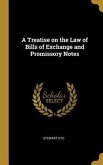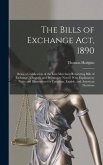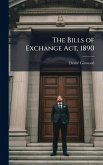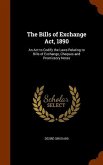"Undoubtedly the Most Elaborate and Complete Treatise Extant on the Elementary Principles of the Subject" Apart from James Kent, no man has had greater influence on the early development of American law than Joseph Story [1779-1845], an associate justice of the U.S. Supreme Court, Dane Professor of Law at Harvard Law School and prolific author. Since their publication, his books have been cited extensively in America and in Britain. He remains an authority today. In The Formative Era of American Law, Roscoe Pound refers to the Commentaries on the Law of Bills of Exchange as one of the the most widely used and authoritative treatises of the nineteenth century. As Marvin pointed out in 1847, it was "undoubtedly the most elaborate and complete treatise extant on the elementary principles of the subject," one that draws on a wide range of American, English and Continental sources.
Bitte wählen Sie Ihr Anliegen aus.
Rechnungen
Retourenschein anfordern
Bestellstatus
Storno

![Commentaries on the Law of Bills of Exchange [1843] - Story, Joseph Commentaries on the Law of Bills of Exchange [1843] - Story, Joseph](https://bilder.buecher.de/produkte/66/66028/66028390n.jpg)






